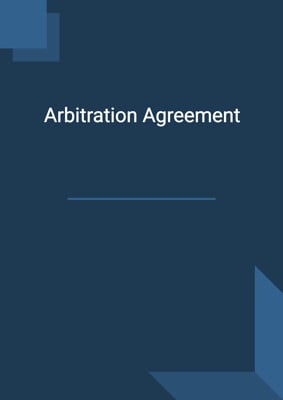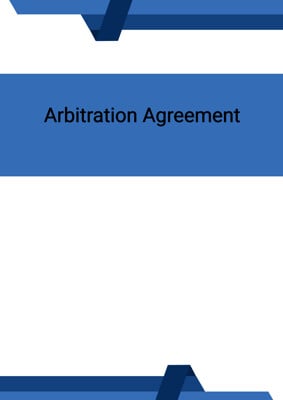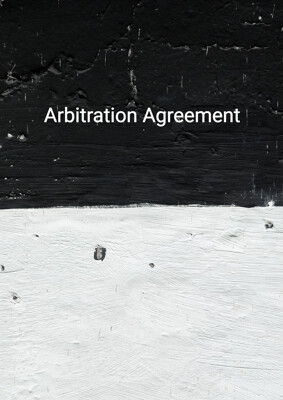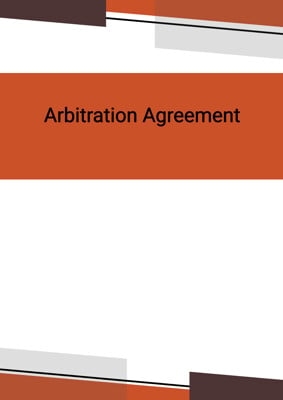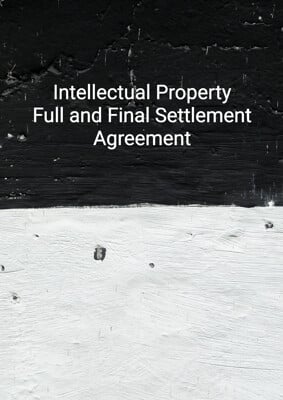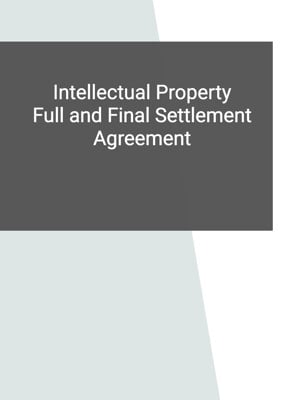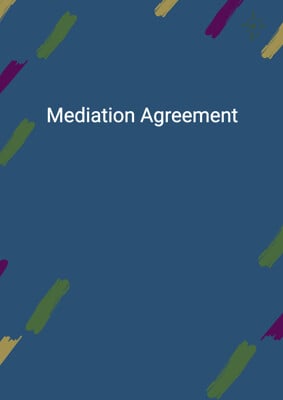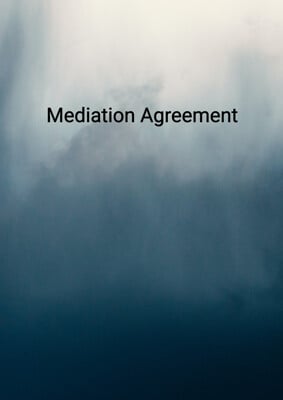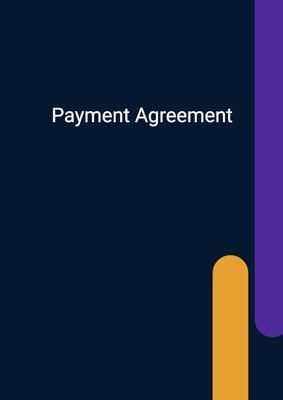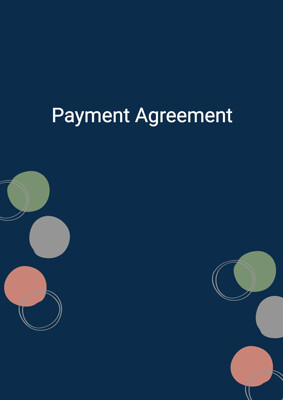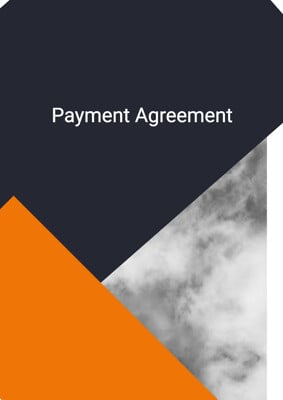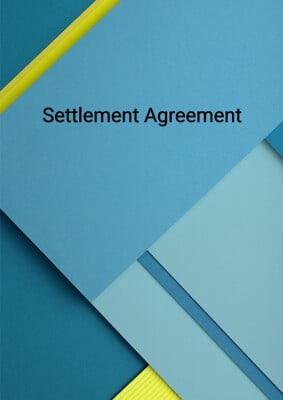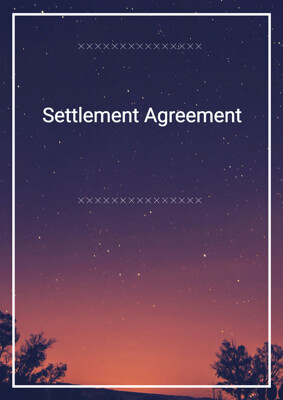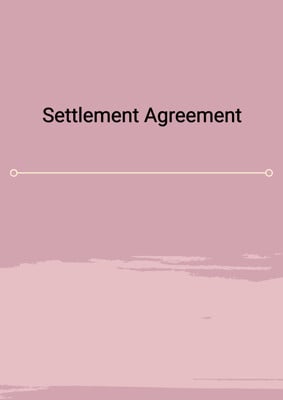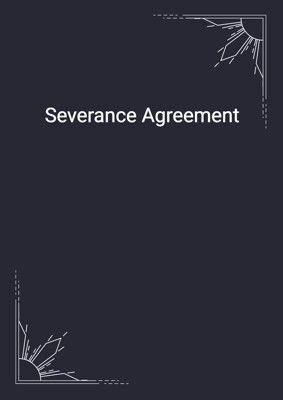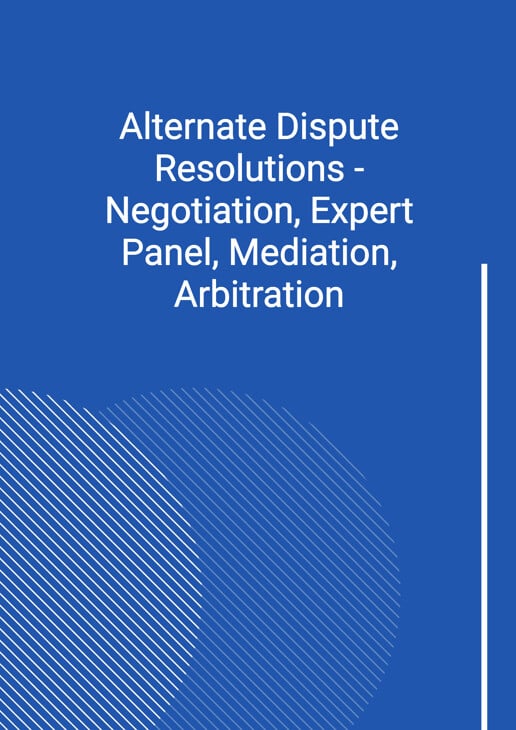
Alternate Dispute Resolutions - Negotiation, Expert Panel, Mediation, Arbitration
Model Clauses Agreement
Model clauses for different alternate dispute resolutions agreement - negotiation, expert panel, mediation and arbitration for used in contracts. This can be a standalone agreement or added to existing agreements.
How to Tailor the Document for Your Need?
01
Create Document
Click "Create Document" button and the document will be prepared with your account details automatically filled in.
02
Fill Information
Please fill in any additional information by following the step-by-step guide on the left hand side of the preview document and click the "Next" button.
03
Get Document
When you are done, click the "Get Document" button and you can download the document in Word or PDF format.
04
Review Document
Please review the document carefully and make any final modifications to ensure that the details are correct before publication / distribution.
Document Preview
Document Description
The document titled 'Alternate Dispute Resolutions - Negotiation, Expert Panel, Mediation, Arbitration' is an important agreement that outlines the process for resolving disputes between two parties, referred to as Party A and Party B. The document begins with a detailed introduction, stating that it is made on the current date between Party A and Party B. It then proceeds to explain the different methods of dispute resolution, including negotiation, expert determination, mediation, and arbitration.
In the negotiation section, it is stated that any dispute arising from the agreement should be first referred to the chairman or chief executive of the parties. They will then meet and attempt to resolve the dispute through negotiation. If the dispute is not resolved within 7 days, it will be referred to a panel of three independent experts for expert determination.
The expert determination section provides detailed instructions on how the panel should be constituted, with a president appointed by the parties and each party nominating one person to the panel. The panel's decision is stated to be final and binding, unless the dispute is resolved by agreement or referred to arbitration.
The mediation section explains that if either party serves notice of arbitration, the parties should seek to resolve the dispute amicably before arbitration by using a neutral adviser. The neutral adviser will assist the parties in resolving the dispute through an alternative dispute resolution procedure agreed upon by the parties or established by the neutral adviser. If the parties reach an agreement, it will be recorded in writing and become binding.
The arbitration section states that any dispute not resolved through negotiation, expert determination, or mediation will be referred to arbitration. The arbitration will be conducted under the rules of an arbitration body, with the tribunal consisting of three arbitrators. The arbitrators have the power to review and revise any decision made by the panel or expert determination.
The document also includes provisions for the continuation of performance during disputes, recourse to the courts for interim relief, confidentiality of the dispute resolution procedures, governing law of the arbitration, amendment of the agreement, severability of invalid provisions, entire agreement clause, and no rights for third parties.
In conclusion, the document provides a comprehensive framework for resolving disputes between Party A and Party B, starting with negotiation and escalating to expert determination, mediation, and arbitration if necessary. It ensures that both parties have a clear understanding of the dispute resolution process and their rights and obligations throughout.
How to use this document?
To use the 'Alternate Dispute Resolutions - Negotiation, Expert Panel, Mediation, Arbitration' document effectively, follow these steps:
1. In the event of a dispute, first attempt to resolve it through negotiation. Refer the dispute to the chairman or chief executive of both parties, who will meet and try to reach a resolution.
2. If the dispute is not resolved within 7 days of the referral, it should be referred to a panel of three independent experts for expert determination. Follow the instructions provided in the document to constitute the panel and ensure that the panel's decision is final and binding.
3. If either party serves notice of arbitration, try to resolve the dispute amicably before arbitration by using a neutral adviser. Agree on a suitable person to be appointed as the neutral adviser or request the appointor to make the appointment. Use an alternative dispute resolution procedure agreed upon by both parties or established by the neutral adviser.
4. If an agreement is reached through mediation or any other means, record it in writing and ensure that all parties sign the agreement. This agreement will be binding.
5. If the dispute proceeds to arbitration, refer to the rules of the chosen arbitration body and ensure that the tribunal consists of three arbitrators. The arbitration will be conducted in English, and the seat and place of the arbitration will be as specified in the document.
6. Throughout the dispute resolution process, continue to perform obligations under the agreement unless it has already been terminated or the works have been abandoned.
7. If necessary, seek interim relief from the courts to aid the expert determination, arbitration, or enforcement proceedings.
8. Maintain confidentiality regarding the negotiation, expert determination, and mediation procedures, unless required by law or for consultation with legal advisers or experts.
9. Ensure that any agreed changes to the agreement are made in writing and signed by all parties to be valid.
10. If any part of the agreement is deemed void or unenforceable, the remainder of the agreement will still be enforceable. Sever any invalid parts as necessary.
11. Remember that this agreement supersedes any prior written or oral agreements between the parties.
By following these steps, you can effectively utilize the 'Alternate Dispute Resolutions - Negotiation, Expert Panel, Mediation, Arbitration' document to resolve disputes between Party A and Party B in a fair and efficient manner.
Not the right document?
Don’t worry, we have thousands of documents for you to choose from:
